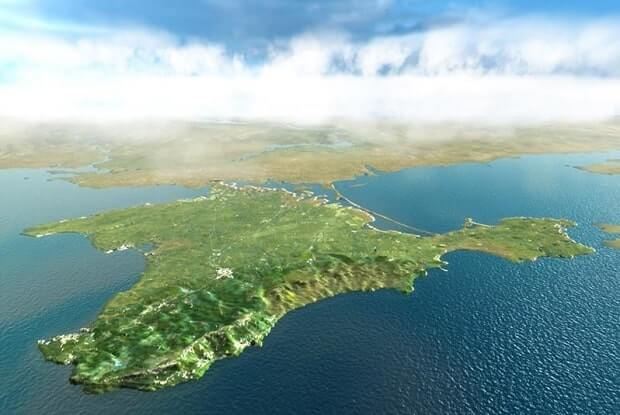History seems to be repeating itself in the Crimea, as the current conflict mirrors past events

The Crimean-Ukranian crisis is fast moving and constantly changing. Though Crimea is a small republic, it is impinging on the sensitivities of Russia and causing the old concept of the Eastern and Western blocs to re-emerge. This places the rest of the world in a quandary as to which side they belong to.
President Obama, speaking about the alleged invasion of Crimea (which the Russian President Putin denies), places Putin “on the wrong side of history”. Obama says that “now is the time to consider whether they [the Russians] can further their interests with diplomacy as opposed to force”. Obama is actually alluding to the long drawn-out conflict of the original Crimean War of the nineteenth century. That war resulted in much anguish and trouble for the parties concerned, with the Russians ultimately paying a heavy price. Obama makes it clear that in the current Ukranian-Crimean conflict “there will be costs”, adding that “over time this will be a costly proposition for Russia”.
The ‘Crimean War’ of the nineteenth century had lasted for three years, between 1853 to 1856. With subsequent conflict and tension over many more years, Russia is considered to have lost that war to a Western alliance of France and Britain, as well as to the Ottoman Empire and Sardinia. Austria played a passive role which favoured the Western alliance.
During the Crimean War, there was a desperate charge by a Light Brigade (mostly British) with tragic consequences. Alfred Lord Tennyson wrote a poem The Charge Of The Light Brigade about the event, which has reverberated over time and its lines are often recited by heart:
“…Into the valley of Death
Rode the six hundred…
Some one had blunder’d
Their’s not to make reply,
Their’s not to reason why,
Their’s but to do and die….
Boldly they rode and well,
Into the jaws of Death,
Into the mouth of Hell
Rode the six hundred”.
There was even a film produced about that tragic event featuring two light infantrymen relocated from a comfortable life in India to the Crimean warfront, leaving their loved ones behind. In recent years this film classic has been converted into colour. Verses of Tennyson’s poem appear as the charge is shown.
Russia at that time was a technologically backward country unlike today when it is a technological super power. When the French sent the Charlemagne line ship into the Black Sea it had the speed of eight-and-half knots (then a high speed) and it easily defeated the Russian and Ottoman fleets. Earlier, Russia had attacked the Ottoman Fleet at the port of Sinope. This encouraged the French to demand that the Catholic Church rather than the Orthodox Church should represent Christians during talks.
The situation changed many years later when Benjamin Disraeli became the Prime Minister of Britain in 1868. He was the son of a Jew who had turned Anglican. A conservative politician, he took bold measures which changed the British landscape.
Disraeli apparently had two important goals: he opened Britain to an egalitarianism which it had not seen before. The second related to his understanding of the importance of India to Britain.
In 1875, the ruler of Egypt, the Khedive, was obliged to sell shares in the Suez Canal. Disraeli ensured that Britain purchased a large number of these shares. Initially, the Khedive only made mortgage payments to the British Government. These payments escalated in value when in 1895 a dividend was paid, and this kept growing along with the value of the shares. The route to India and all the British-held lands to the East like Australia was thus secured.
As the situation with regard to the ‘Eastern Question’ developed into winners and losers (France and Britain as winners and Russia and Ottoman as losers), Disraeli’s intentions in guarding the British interests in India became more clear. When British troops were needed in the Eastern Mediterranean, he recruited them in India.
This was the first time that Indians served in the British Army. Disraeli can thus be considered as the founder of the British Indian Army. That army was to keep growing until during World War II, when it numbered over a million.
Coming back to the present day, India has called for elections and dialogue between the countries involved in the Ukranian-Crimean conflict. India had developed close ties with the overthrown President Viktor Yankovich with regard to the production of military equipment in the Ukraine and the servicing of Indian aeroplanes, helicopters and ships. The situation is currently in limbo.
There is little doubt that the Russian President Vladimir Putin is an outcast in the eyes of the West, but that is not the case with his fellow countries of the BRIC group (Brazil, Russia, India and China). In fact he has been considerably honoured by the Chinese. The official organ of the Communist Party, the Global People, paid him an extraordinary tribute by placing his picture on the cover of its first issue for 2014. Inside, Putin’s achievements were discussed.




